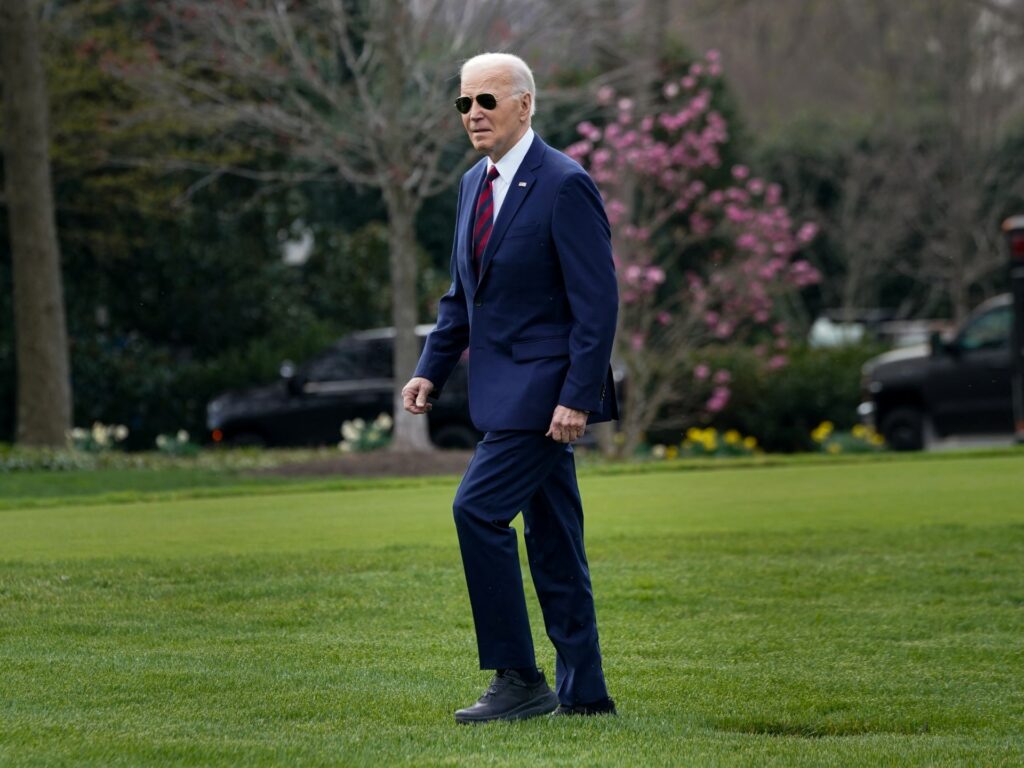Biden Administration’s Defense of Supporting Israel Amid Gaza War
The ongoing conflict in Gaza has put the Biden administration under scrutiny for its support of Israel. Despite President Joe Biden’s recent statements condemning the Israeli offensive in Rafah, reports have emerged that the US plans to advance a $1 billion arms transfer to Israel, including tank shells.
Critics argue that this apparent contradiction between condemning Israel’s actions and providing further weaponry is part of a pattern where the US says one thing but does another. Hassan El-Tayyab, legislative director for Middle East policy at Friends Committee on National Legislation, expressed concern over the US’s complicity in what he called “horrific war crimes.”
Biden’s initial statements led some advocates to believe that the US might use its leverage to pressure Israel to end its abuses against Palestinians. However, the reports of the arms transfer raise questions about Biden’s commitment to protecting civilians in Rafah and standing up to Israel, its longtime ally.
The Biden administration has presented its policies to address legal and political concerns about its unconditional support for Israel. Here is a breakdown of how the administration has navigated key issues related to the conflict:
Rafah Invasion:
Claim: The US government denies that Israel has launched a major invasion of Rafah.
Fact: The Israeli offensive in Rafah has displaced hundreds of thousands of Palestinians and strained humanitarian aid efforts in Gaza. While Israeli troops have not entered the city center, tanks have pushed deeper into Rafah.
Ceasefire:
Claim: The Biden administration says it is pushing for a ceasefire in Gaza and blames Hamas for rejecting proposals.
Fact: The US has vetoed ceasefire resolutions at the UN and voted against others. Hamas accepted a ceasefire deal proposed by Qatar and Egypt, which Israel rejected.
International Humanitarian Law Violations:
Claim: The US cannot definitively determine if Israel is using American weapons to commit abuses.
Fact: Rights groups have documented violations of international law by the Israeli military, which extensively uses US weapons.
Leahy Law:
Claim: The Biden administration says it applies the same standards to Israel in enforcing the Leahy Law.
Fact: Experts argue that the US has a special process for applying the law to Israel, giving the country more leeway to address allegations of abuse.
De-funding UNRWA:
Claim: The Biden administration cut off funding to UNRWA to comply with a law passed by Congress.
Fact: Biden supported the funding legislation and suspended aid to UNRWA following Israeli allegations that were found to lack credible evidence.
The Biden administration’s defense of its support for Israel amid the Gaza war has raised questions about the US’s commitment to upholding human rights and international law in the region. Critics continue to call for accountability and a reevaluation of US policies toward Israel and Palestine.
#Rafah #arms #UNRWA #Biden #defends #supporting #Israel #Gaza #war
The ongoing Israel-Gaza conflict and the Biden administration’s response to it have raised questions about the US’s unconditional support for Israel. Despite initial statements condemning the Israeli offensive in Rafah, reports of a $1bn arms transfer to Israel have caused confusion and concern among advocates. The US government’s rhetoric and policies regarding the conflict have been scrutinized, with discrepancies between what is said and what is done.
The implications of the US’s support for Israel amidst the Gaza war are significant. The continued supply of weapons to Israel raises concerns about the US’s role in enabling human rights abuses and violations of international law. The Biden administration’s handling of the conflict, including its approach to ceasefire negotiations and enforcement of the Leahy Law, has come under criticism for lacking accountability and consistency.
Moving forward, it is crucial for the US to reassess its relationship with Israel and prioritize the protection of civilians in Gaza. Actionable advice includes holding Israel accountable for its actions, supporting efforts for a permanent ceasefire, and reevaluating the allocation of aid to organizations like UNRWA that provide essential services to Palestinians. The US must uphold its commitment to human rights and international law, even in the face of political pressures and longstanding alliances. By taking a principled stance and advocating for justice and peace in the region, the US can play a constructive role in resolving the Israel-Gaza conflict and promoting a sustainable and equitable solution for all parties involved.

